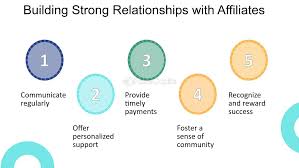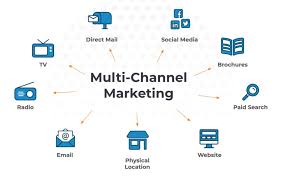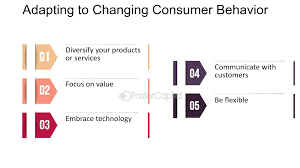
Affiliate marketing has transformed dramatically over the years, evolving from simple referral programs to a sophisticated digital marketing channel that can drive substantial revenue. As we approach 2025, its significance is more pronounced than ever. Brands and marketers are now recognizing that a well-structured affiliate program can create a win-win situation: affiliates earn commissions for promoting products, while businesses enjoy increased exposure and sales.
However, the landscape of affiliate marketing is continuously changing, driven by technological advancements and shifting consumer behaviors. To remain competitive and capitalize on the opportunities ahead, it’s crucial to adapt to these emerging trends. In this blog post, we will explore essential strategies for successful affiliate marketing in 2025, ensuring your business stays ahead of the curve.
Understanding the Affiliate Marketing Landscape in 2025

Current Trends and Predictions
The evolution of affiliate marketing has been nothing short of remarkable. With the rise of e-commerce and the increasing reliance on digital platforms, more businesses are recognizing the potential of affiliate marketing. According to various reports, the global affiliate marketing industry is projected to reach $8.2 billion by 2025, reflecting a compound annual growth rate (CAGR) of 10% over the next few years.
Key statistics reveal that over 80% of brands utilize affiliate marketing as part of their overall marketing strategy. Furthermore, 84% of Publishers leverage affiliate marketing to monetize their content. This indicates a promising growth area for businesses willing to invest in the right strategies.
Technology plays a pivotal role in shaping the future of affiliate marketing. Advancements in artificial intelligence (AI) and automation will streamline processes and enhance efficiency, allowing marketers to focus on strategy and creativity rather than tedious tasks. For instance, AI-driven analytics tools can provide real-time insights into campaign performance, helping businesses adjust their strategies on the fly.
Data analytics will also be crucial in formulating effective affiliate marketing strategies. By understanding consumer behavior through data, businesses can tailor their offerings and create personalized experiences that resonate with their target audience.
In the vast ocean of affiliate marketing, focusing on niche markets can be your lifeboat. Identifying profitable niches involves comprehensive research and a keen understanding of market trends. Start by analyzing current market demands, consumer interests, and gaps in the marketplace.
Tools like Google Trends, SEMrush, and Ahrefs can provide valuable insights into what consumers are searching for. Additionally, consider utilizing social media platforms to gauge trending topics and emerging interests. Engaging with online communities and forums can also reveal niche opportunities you may not have considered.
Tailoring Content for Specific Audiences
Once you’ve identified a profitable niche, tailoring your content to that specific audience is critical. Personalized content and targeted messaging can significantly enhance engagement and conversion rates. Craft content that speaks directly to the needs and desires of your audience, using the language and tone that resonates with them.
For example, if you’re targeting health enthusiasts, consider creating content that addresses their unique challenges, such as meal prep tips or fitness guides. By providing value and establishing yourself as an authority in your niche, you’ll foster trust and loyalty among your audience.
Building Strong Relationships with Affiliates

Communication is Key
The cornerstone of any successful affiliate marketing program is effective communication. Maintaining open lines of communication with your affiliates fosters collaboration and ensures everyone is on the same page. Regular check-ins, updates, and feedback sessions can help strengthen these relationships.
Tools like Slack, Trello, or Asana can facilitate seamless communication and project management. Additionally, hosting webinars or virtual meetups can provide a platform for sharing insights and strategies, ultimately benefiting both parties.
Providing Value Beyond Commission
While commissions are a significant incentive for affiliates, providing additional value can set your affiliate program apart. Consider offering resources, training, or tools that help affiliates succeed in promoting your products. This could include marketing materials, exclusive access to new products, or even personalized coaching sessions.
By investing in your affiliates, you create a supportive environment that encourages them to put more effort into their promotions. This reciprocity builds stronger partnerships and can lead to increased sales for your business.
Leveraging Multi-Channel Approaches

Integrating Social Media into Affiliate Marketing
In today’s digital landscape, social media platforms like Instagram, TikTok, and Pinterest are essential for affiliate marketing success. These platforms allow affiliates to showcase products in visually appealing ways, making it easier to engage potential customers.
To effectively leverage social media, consider creating branded hashtags and encouraging affiliates to use them in their posts. Collaborate with influencers who align with your brand values to tap into their audiences and broaden your reach. Utilizing features like Instagram Stories or TikTok videos can create dynamic content that drives traffic to your affiliate links.
Email Marketing as a Tool for Engagement
Email marketing remains a powerful tool for engaging customers and driving affiliate promotions. Crafting effective email campaigns that highlight affiliate offerings can significantly enhance your marketing efforts. Start by segmenting your email list based on customer preferences and behaviors, allowing for targeted messaging.
Consider implementing automated email sequences that introduce new affiliate products, offer exclusive discounts, or share success stories from affiliates. These personalized emails not only keep your audience informed but also encourage them to take action.
Strategy 4: Investing in Quality Content Creation

Importance of High-Quality Content
In the realm of affiliate marketing, content is king. High-quality content drives traffic, builds credibility, and ultimately leads to conversions. Investing in well-researched, informative, and engaging content can set your brand apart from competitors.
Whether it’s blog posts, product reviews, or video tutorials, ensure your content provides real value to your audience. Quality content also encourages sharing, increasing visibility and reach.
Utilizing Different Formats
Diversifying your content formats can enhance engagement and cater to different audience preferences. Explore various formats such as videos, podcasts, infographics, and eBooks to reach a broader audience.
For instance, video content, such as product demonstrations or tutorials, can be incredibly effective in showcasing affiliate products. Podcasts allow you to engage with your audience on a personal level, while infographics can simplify complex information into digestible visuals.
Adapting to Changing Consumer Behaviors

Understanding Consumer Needs in 2025
As we move toward 2025, understanding shifts in consumer purchasing behaviors is essential. The pandemic has significantly altered how consumers shop, with a heightened focus on online shopping, sustainability, and authenticity.
To stay relevant, businesses must continually research and adapt their strategies to meet these evolving consumer needs. Conduct surveys, analyze purchasing patterns, and stay informed about industry trends to refine your approach.
Implementing Feedback Loops
Gathering insights from customers is crucial for refining your affiliate marketing strategies. Implementing feedback loops allows you to continuously gather data on customer preferences, satisfaction, and areas for improvement.
Consider using tools like Net Promoter Score (NPS) surveys or post-purchase feedback forms to collect valuable insights. Regularly analyzing this data can help you make informed decisions and enhance your affiliate marketing efforts.
As we look ahead to 2025, the importance of adapting to the ever-evolving landscape of affiliate marketing cannot be overstated. By emphasizing niche markets, building strong relationships with affiliates, leveraging multi-channel approaches, investing in quality content creation, and adapting to changing consumer behaviors, businesses can position themselves for success in this competitive arena.

